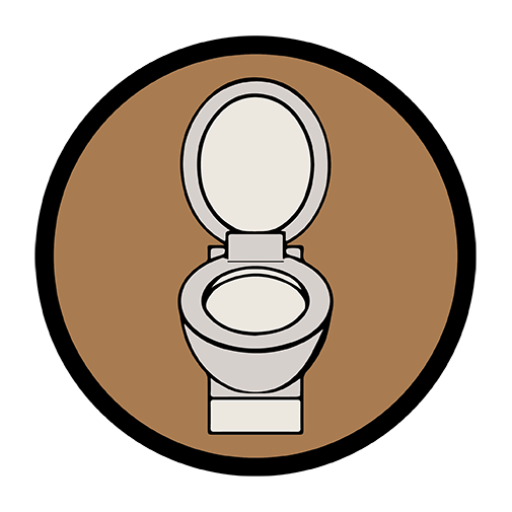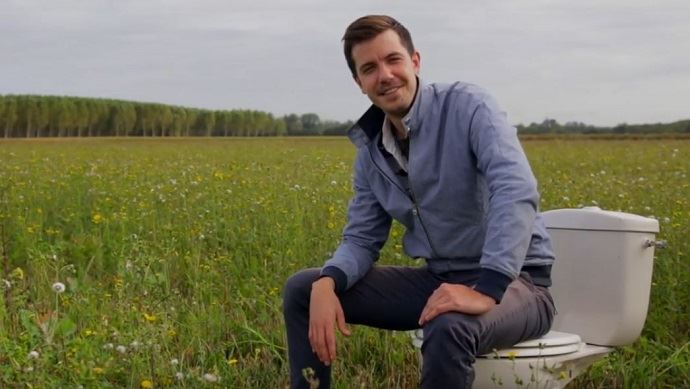Toopi Organics is aiming for a greener environment and ‘yellower’ profit
In the south of France, there’s a start-up that wants to turn pee into profit: this is Toopi Organics. This company knows the importance of urine which can be both a goldmine and a green resource.
It’s nothing new that urine is full of useful chemical elements: nitrogen, phosphorus, and potassium, which can help plants grow. Even Kanye West knows it: his new compound in Wyoming will reportedly feature a “urine garden” nourished by the pee produced onsite.
However, this French company made it up on a different scale. The eco-entrepreneurs behind Toopi are calling it: peevolution. Instead of flushing it down the toilets and spending billions a year treating it, Toopi is part of a movement that considers pee as an extremely valuable resource, but they need a lot of it.
Toopi started in 2018 with Mathieu Préel, a portaloo manager, that was venting to his friend about how difficult it was to dispose of the human urine he had collected. “He was telling me how annoying it was to have to pay all this money to dispose of all this pee”, says Michael Roes, Toopi’s co-founder.
Roes was already the manager of a fertilizer company and he was aware that pee could be used to feed and nourish plants. The problem was that a vast quantity of pee was needed. Urine contains just a fifth of the nitrogen found in a bottled fertilizer you might buy in a garden store, and less than 5% each of the potassium and phosphorus, according to chemical analysis by the French researcher Fabien Esculier.
Roes’ challenge was to turn urine into a fertilizer that could actually compete with industrial products. So, he began mixing urine with bacteria that he suspected would boost how much nitrogen, phosphorus, and potassium from the pee that plants can access: azotobacter chroococcum, which helps crops assimilate nitrogen from the air, and lactobacillus plantarum, which helps the plants absorb nutrients and water.
The result was a kind of super-charged urine that, according to early testing, works well alongside chemical fertilizers, unlike pure pee. Tests done in collaboration with the National School of Agricultural Engineering in Bordeaux found that Toopi’s fertilizer helped corn plants grow from 60% to 110% more compared to mineral fertilizer.
The company has just opened its first site near Bordeaux. That space is currently almost empty, except for the huge tankers of urine and a tent full of tomato plants undergoing tests. But Roes eventually would like to process 1 or 2 million liters a year there, in a process that involves warming the urine up in metal vats and shaking it around to help the bacteria grow.
Turning urine into fertilizer isn’t just a neat way to make the most of our waste, it could help relieve pressure on the environment, too. If we can unlock the plant-feeding potential of our urine, it could reduce our reliance on synthetic fertilizers, which currently help produce food for at least half of the world’s population. The problem is that nitrogen applied to fields often ends up flowing into waterways and feeding algal blooms, vast stretches of algae that mess up the ecosystems of lakes and rivers by drastically cutting the water’s oxygen supply.
The other big problem with this current way of feeding plants is that producing synthetic fertilizers requires a vast amount of energy. “We’re talking about 1 or 2% of global energy use”, says Fabien Esculier, a researcher at the Ecole des Ponts ParisTech engineering school and pee evangelist who wears a pin badge that says “Urine is cool”. 😂
Esculier also points out that urine would be a more reliable source of phosphorus extracted from mines in China, Russia, and the Western Sahara. Rather than dig fertilizer up from the ground, why not switch to a source of phosphorus that is present wherever there are humans?
Esculier and his colleagues have been testing a range of urine-based fertilizers, and he says that most of them are as efficient as their chemical alternatives. But urine is only one fix in the fight for a better way to farm. Run-off from urine-based fertilizers could also feed algal blooms. Nutrients leaking from our sewers into rivers is already a problem in the UK, part of a eutrophication problem that the government has already spent £2.1 billion trying to fix. “In my view, it’s more about transforming agricultural practices and figuring out how urine could be used in new eco-farming methods”, he says.
Like Nace, Esculier is preoccupied with figuring out how humanity can better design its sanitary systems to recognize our urine for the amazing resource it is, diverting its nutrients before they hit the drain. Each human produces more than 450 liters a year. In the UK alone, that’s 30 billion liters of a valuable resource that we’re flushing away using clean water, which is in ever-shorter supply.
The riddle is how to get hold of the urine in the first place. Modern toilets flush everything down together, making it impossible to separate pee from poop. Swedish companies began developing designs that separate the two in the 1990s, and the German-made NoMix toilet followed around the turn of the millennium men didn’t like having to sit down to get the angle right, though, and the company eventually stopped making them.
Toopi’s plans don’t necessarily depend on mass uptake of separating loos; they could source the pee for their fertilizer from urinals. But even then, they’d need a huge quantity in order to produce at scale. The company is in talks with anyone and everyone who might be able to supply it: medical labs, festivals, and construction companies that have portaloos on their building sites. The most enticing of all is a potential partnership with the Stade de France, home of the national football and rugby teams. The stadium seats more than 80,000 fans, most of whom take a leak during their visit. It’s a lot of piss!
The firm, which has just raised more than $1 million in its first funding round, is developing 5 different liquid fertilizers which can be applied using existing farming methods, and Roes says, are cheaper to use; the starter fertilizer for new crops costs about $47 per hectare, as opposed to $70 for the chemical stuff. Distributors have “several million liters” on pre-order, according to the company.
Currently, though, they’re producing virtually nothing. Before being allowed to launch on the market, Toopi has to submit its fertilizers to rigorous testing. They’re hoping to get the green light to start mass production next year. “France has some of the toughest regulations on fertilizers, so it isn’t easy”, said Roes. “But that means that once French authorities have given us the go-ahead, the product would be ready to go worldwide”.
One piece of good news for supporters of the peevolution came in January when a study from the University of Michigan found that urine can be safely used as a fertilizer without fear of it fuelling the spread of antibacterial resistance, a previous concern.
“The world is already running out of clean water”, he said. “And if water’s in short supply, I think we’d rather drink it than flush it down the toilet. That much is obvious”.
Source wired.co.uk

